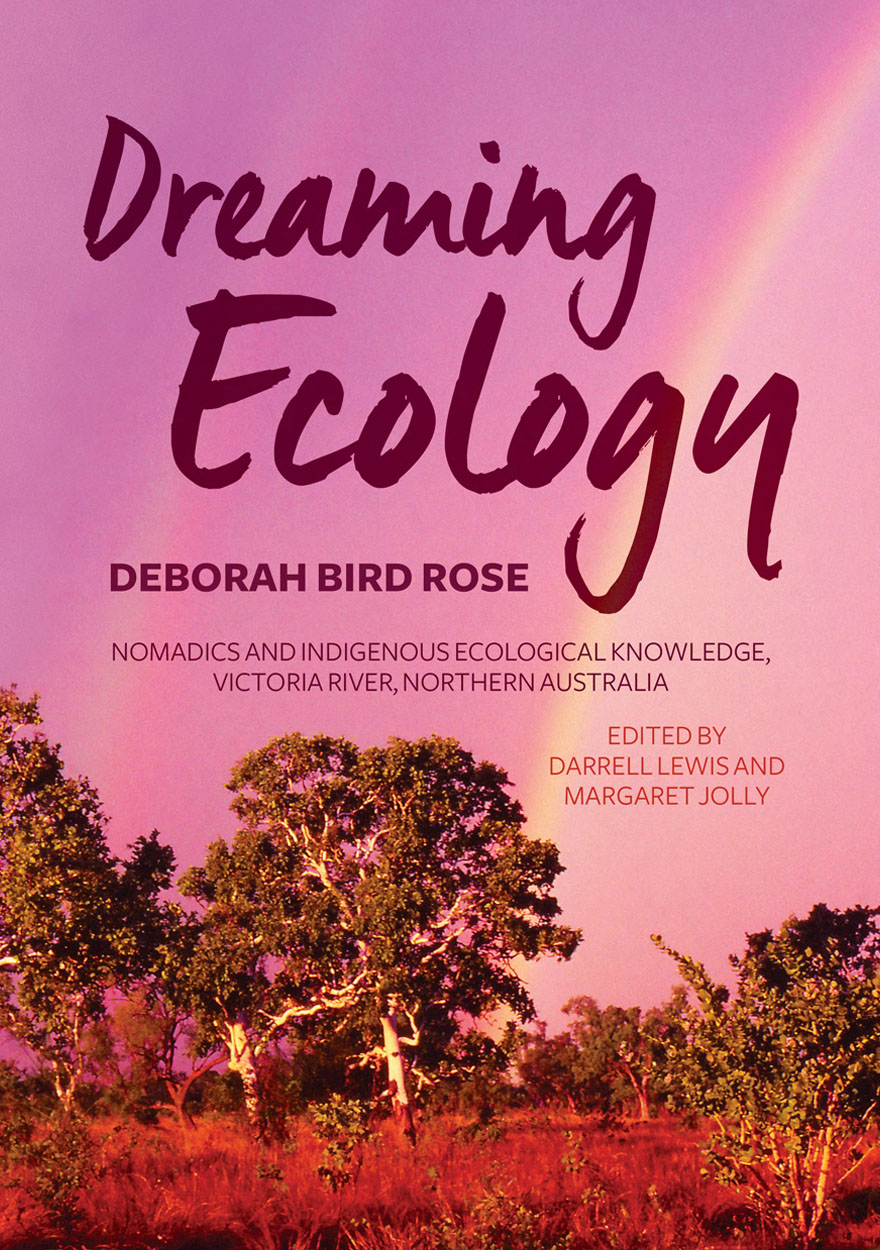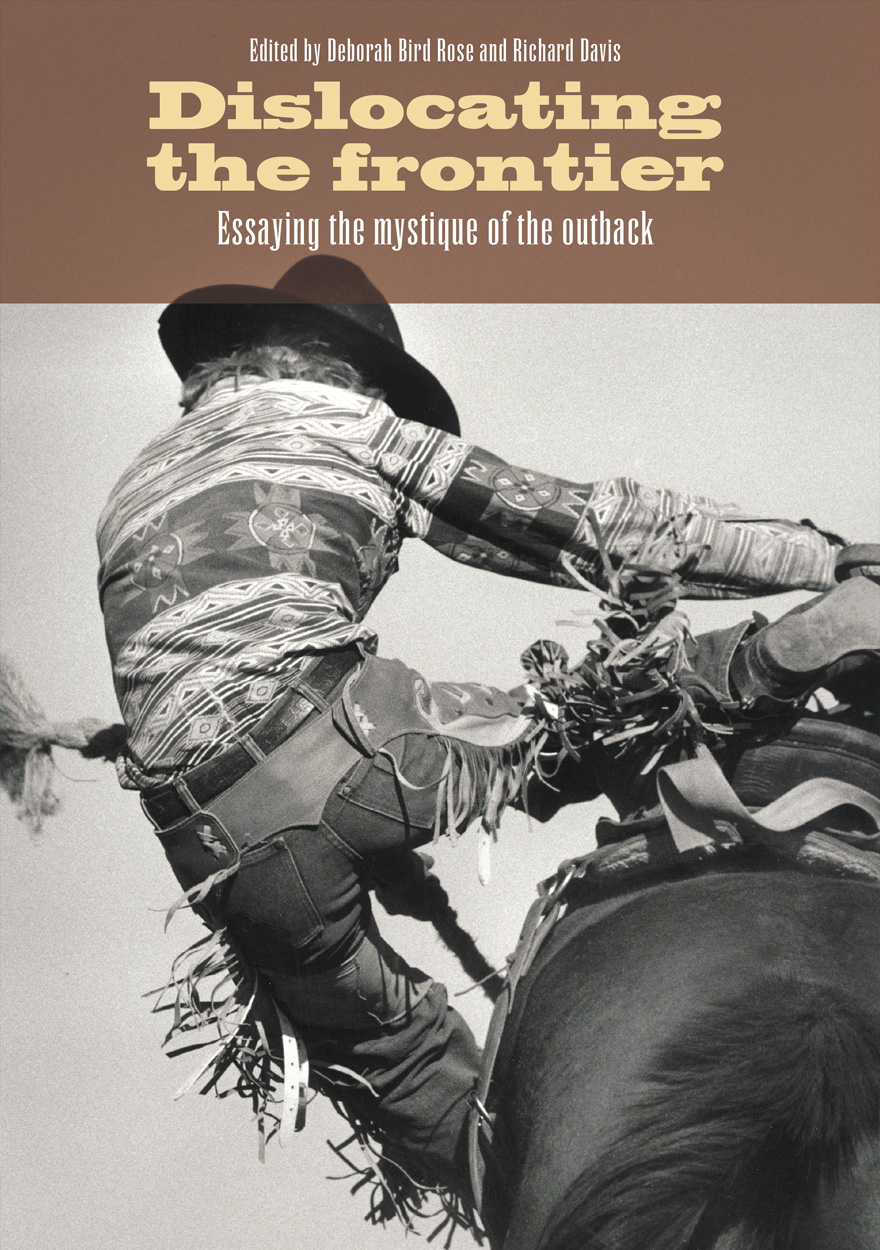Deborah Bird Rose
Deborah Bird Rose (1946–2018) was an Australian-based anthropologist who worked with Indigenous Australians and an internationally renowned scholar in environmental humanities, focusing on multi-species ethnography and extinction studies. Her research analysed the entwined issues of social and ecological justice, based on long-term relationships, especially with Indigenous people in the Victoria River region and more broadly in the Northern Territory. She worked with Indigenous Australians on many land claims. This book completes her envisaged trilogy, with Hidden Histories (1991) and Dingo Makes Us Human (1992), both widely acclaimed, respectively winning the Jessie Litchfield and Stanner prizes.

Dreaming Ecology »
Nomadics and Indigenous Ecological Knowledge, Victoria River, Northern Australia

Australian Humanities Review: Issue 50, 2011 »
Unloved Others: Death of the Disregarded in the Time of Extinctions




